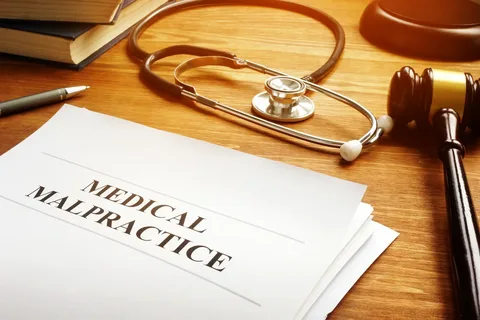Understanding Medical Malpractice Claims
Medical malpractice cases are complex matters that often rely on expert testimony to provide a clear and accurate picture of the situation. In this article, we will explore the importance of expert testimony in medical malpractice cases.
We will discuss the role of expert testimony in such cases, the criteria for expert witness qualification, tips for selecting an appropriate expert, the importance of clear and concise testimony, and strategies for presenting expert testimony at trial. Finally, we will outline common challenges associated with using expert witnesses in medical malpractice cases.
Post Content
The Role of Expert Testimony in Medical Malpractice Cases
If you’ve ever been to the doctor and heard them say ‘Take two aspirin and call me in the morning,’ you know that diagnosis and treatment of medical issues can be more art than science. When determining the outcome of a medical malpractice case, expert testimony is essential for determining the standard of care and whether the treating physician and/or hospital provided that care.
Whether you need a second opinion from a physician expert witness or the latest information on a medical condition, relying on an experienced doctor is the best way to ensure your health and well-being.
Without expert testimony, it is especially difficult to argue in a court of law whether a doctor or hospital was truly negligent in their care of a patient, making expert testimony invaluable in medical malpractice cases. In other words, if you don’t have an expert to back you up, you may as well kiss your case goodbye!
Criteria for Expert Witness Qualification
When it comes to medical malpractice cases, the testimony of an expert witness can make or break a case. This is why it’s crucial that only qualified experts are appointed as intended witnesses. What kind of qualifications should an expert witness possess?
First and foremost, the witness must have specialized knowledge of the situation at hand. This includes a thorough understanding of the medical field and the details of the case. Furthermore, the expert should have an understanding of what constitutes malpractice.
The expert witness should also have experience testifying in court, as well as attending training seminars related to the case. Finally, the expert witness should maintain professional credentials, such as a medical license, and have a proven record of experience providing expert testimony in court.
By following these guidelines, attorneys can ensure that only competent and qualified experts are chosen as expectations to testify in medical malpractice cases.
Tips for Selecting an Expert Witness
When it comes to medical malpractice cases, an expert witness can often make or break your case. So if you’re looking to put forth a successful case, you’ll want to make sure you find the right expert witness. Here are a few tips to help give you a leg up in the search:
– First, make sure you thoroughly evaluate each expert’s credentials. This will ensure you get the expert with the right qualifications and expertise that fits your specific case.
– Next, check your state law to be sure the expert you select meets all licensing requirements. You’ll want an expert who is properly certified and compliant in your state.
– Lastly, pick an expert who has clear communication and presentation skills. You’ll need an expert who can effectively explain their findings and opinions in the courtroom in a way that is comprehensive and easy to understand.
Finding the right expert witness is an important part of building a successful medical malpractice case, so don’t take the search lightly! Good luck!
The Importance of Clear and Concise Expert Testimony
When it comes to medical malpractice cases, having an expert witness is crucial. But it’s not enough to simply have an expert. To be effective, their testimony must be clear and concise.
After all, jurors are not medical experts and need to understand the concepts being presented to them. Without clear testimony, it can be difficult for jurors to properly weigh the facts and arrive at a fair verdict. So if your expert witness is called to the stand, make sure they speak in terms everyone will understand, not just their fellow medical professionals!
Strategies for Presenting Expert Testimony at Trial
When it comes to medical malpractice cases, the key to success is often in the details. And the most important detail of all? Expert testimony. A good expert witness can make a real difference—bringing key facts to the table, or offering a new way of interpreting the evidence to your advantage.
But before that expert takes the witness stand, it’s your job to prepare and present their testimony in a clear, convincing manner. Here are some tips to keep in mind:
- Know your witness – Take the time to get to know your witness, their experience, qualifications, and background. This will help you craft your questions to the witness, ensuring that the right topics are addressed.
- Understand the standard of care – Be sure to understand the standard of care that is expected of all medical professionals so your witness can explain in detail where the care provider may have gone wrong.
- Keep it simple – Simplicity is key when presenting testimony. That means no legalese or jargon, and stay away from legal theories that your witness may not be an expert in. Keep the focus on the facts.
- Practice – A good witness is like a good athlete – practice is essential. Have your expert practice the testimony multiple times with you to prepare and make sure their answers are clear and concise.
Following these simple steps can help ensure your expert testimony is presented in the most effective way possible, giving your case the boost it needs to succeed.
Common Challenges in Using Expert Witnesses in Medical Malpractice Cases
When it comes to medical malpractice cases, the services of an expert witness is invaluable. Unfortunately, the search for an expert witness can be a tricky endeavor. From root-canaling your way through paperwork and searching for the right qualifications to finding someone who is willing to testify, the process can be long and tedious.
Even if you manage to find an expert who fits the requirements and is willing to help you out, there may be other challenges that stand in your way. Many medical malpractice cases require a broad range of knowledge, and there may be difficulty in finding an expert who is knowledgeable and specialized enough to provide the necessary evidence.
Additionally, convincing the court that the expert witness is credible and reliable can be difficult, as the opposing side may attempt to discredit the expert’s testimony. Ultimately, the process of finding and presenting an expert witness in medical malpractice cases can be a daunting one.


